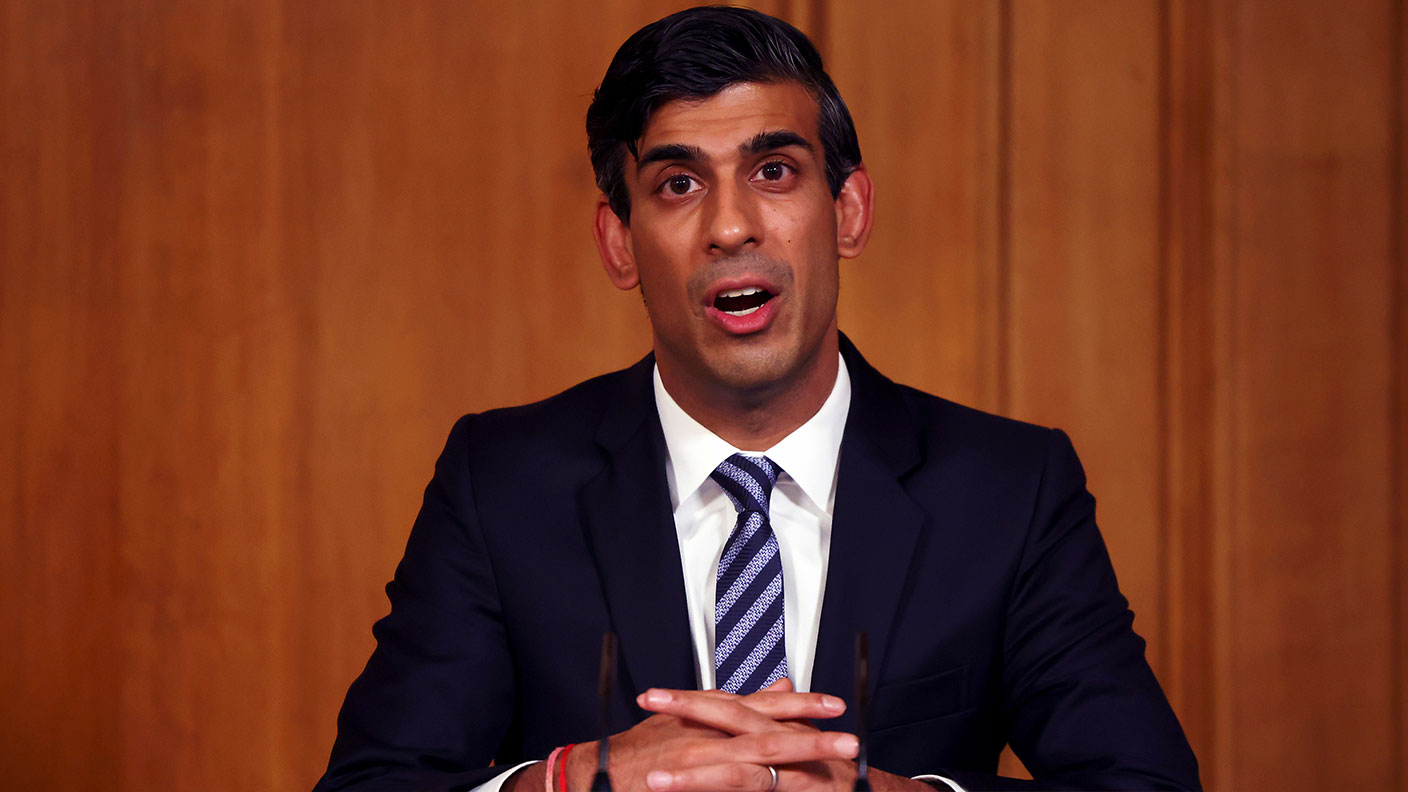Following Rishi Sunak’s announcement yesterday evening that the country will head to polling stations on Thursday 4 July for the next General Election, MoneyAge has rounded up some reaction from the industry about what the result and a new Government could mean for the consumer finance sector.
Mortgages
Executive director at Zoopla, Richard Donnell, said that elections normally lead to some “stalling” in property market activity and highlighted that the upcoming election period will run over early summer, a time when market activity tends to tail off.
“The election announcement is likely to stall the pace at which new sales are being agreed in the coming weeks as we run up to the start of the summer slowdown,” Donnell said.
“Most buyers well into the home buying process close to agreeing a sale will ideally want to push through and agree to sales now. Those who are earlier in the process may look to delay decisions until the autumn after the election is over.
“Overall, we don’t see the election having as big an impact as in previous years, particularly as there is not a huge divide in policy between the two main parties and with few specifics on housing other than a focus on reforming the private rental sector and boosting housing supply. However, sales completions may now fall slightly short of the 1.1 million we expected for 2024.”
CEO of Spicerhaart and Just Mortgages, John Phillips, added: “We certainly need to see some concrete plans on how [the Government] plans to answer the clear affordability challenges that remain in the market, as well as the persistent undersupply of housing. An action plan is also needed to encourage landlords to remain in the market to support the millions of households that rely on the private rental sector.
“With real pressures on affordability, it would be fantastic to see a return of scheme such as Help to Buy or something similar that includes second-hand homes. Given that it is proving to be the main way buyers are getting onto the property ladder in the current climate, it would be great to see more support given to the likes of shared ownership and other low deposit schemes.”
Tax
“A key battleground is likely to develop over the issue of taxation,” commented AJ Bell’s personal finance director, Laura Suter.
“For some, taxes need to rise in order to fund already-stretched public services. For others, ever-increasing tax bills are evidence that public spending is out of control and taxes need to be cut to incentivise growth.
“The Conservatives will surely point to recent cuts to National Insurance as evidence of their commitment to reducing the tax burden, while Labour will argue that frozen tax thresholds mean we’re paying more tax via stealth methods.
“In truth, there is very little wiggle room in either direction. Taxpayers will struggle to stomach further tax increases, while tax cuts will eat into the future Chancellor’s budgets, which is crucial to any spending commitments either party plan on.”
Head of money and markets at Hargreaves Lansdown, Susannah Streeter, added: “The Chancellor has pledged to cut personal taxes further, with more tinkering to National Insurance looking likely, to try and stimulate growth.
“The latest public sector borrowing snapshot arguably offers the Government even less wiggle room to bestow treats on voters. Borrowing in April totalled £20.5bn, above the forecast of the Office for Budget Responsibility and overall borrowing for the year was revised upwards.
“It seems further tax cuts would come at the expense of public services. Already current Government spending plans would involve a large cut to departmental budgets over the rest of the decade, according to the IFS, to meet the government’s own fiscal rules.”
Investments
Sunak’s election announcement had followed figures earlier in the day from the Office for National Statistics showing that inflation had fallen to 2.3%.
With this in mind, Royal London Asset Management’s head of multi asset, Trevor Greetham, said: “While investors were at one point expecting at least six rate cuts from the Bank of England this year, inflation has been slow to fall and they now put only a one in 10 chance on a first rate cut in June.
“Against this backdrop, and absent major surprises, we don’t expect the UK election to be a market moving event. The opinion polls are strongly skewed towards a victory for Keir Starmer’s Labour. Moreover, macro-economic policy differences are far smaller than they were in 2019 when Boris Johnson squared up against Jeremy Corbyn. This time both parties are pledging to stick to fiscal rules and to stay outside the EU Single Market. Either party would inherit severely strained public finances, limiting their room for manoeuvre.”
Managing Partner of GSB Wealth, Stuart Ritchie, added: “The polls indicate a significant lead for Labour. Volatility in the stock market around election time is expected, but historical trends show eventual stabilisation.
“However, uncertainty is the stock market’s greatest enemy. Historically, the market tends to thrive when it anticipates a clear winner in an upcoming election. This was evident in 1997, with the market experiencing growth before, during, and after Labour's widely expected victory. Economic factors such as inflation and interest rates influence market returns more than election returns.”
ISAs
On ISAs, Ritchie added: “Labour aims to simplify the ISA landscape and the proposed UK ISA by the Conservatives is criticised as complex and unlikely to achieve its intended goal.”
Director of public policy at AJ Bell, Tom Selby, called the proposed UK ISA a “deeply flawed gimmick” that will not achieve its stated aim of reviving UK capital markets.
“What’s more, it will add complexity to the ISA landscape, something AJ Bell research shows puts people off using the product,” Selby added.
“Regardless of who triumphs in the General Election, the UK ISA should be confined to the policy dustbin, with focus instead trained on simplification and increasing the ISA allowance. This would be much more likely to boost UK Plc over the long-term.
“Labour has already said it will look to simplify the ISA landscape to make it as easy as possible for people to invest if it is elected to power. This is something that AJ Bell has campaigned for consistently over a number of years, calling for the creation of a single ‘One ISA’ product incorporating the best features of the existing six ISAs. No sensible person designing a savings system from scratch would propose the plethora of different ISAs we have on offer today.”
Pensions
Selby also suggested the next Government will have “big pensions decisions to take”.
He commented: “The state pension triple-lock is one of the few things both parties have been crystal clear on so far, with both Rishi Sunak and Keir Starmer committing to the policy for the entirety of the next Parliament.
“The triple-lock guarantees the state pension rises by the highest of average earnings growth, inflation or 2.5%. The full new state pension is currently worth £221.20 per week, or just over £11,500 per year.
“While neither party is likely to talk about it in their manifesto, it is possible planned state pension age increases will also come into focus for the next administration. The current state pension age is 66, with plans in place to raise this to 67 by 2028 and 68 by 2046. However, there have been calls from various quarters to accelerate that timetable in order to save the Treasury money.”
Latest News
-
Residential property transactions fall 24% month-on-month
-
Later life lending loans jump 5.1% in Q4 2025
-
Mortgage Awards 2026: Winners announced
-
FCA outlines proposals to close gaps in borrowers’ credit files
-
St. James’s Place closes 2025 with record FuM
-
Average LTV on UK mortgaged home drops to 59% – IMLA
Mortgage Advice Bureau and AI in the mortgage sector
Chief executive officer at Mortgage Advice Bureau, Peter Brodnicki, and founder and managing director at Heron Financial, Matt Coulson, joined content editor Dan McGrath to discuss how Mortgage Advice Bureau is using artificial intelligence to make advancements in the mortgage industry, the limitations of this technology and what 2026 will hold for the market
Perenna and the long-term fixed mortgage market

Content editor, Dan McGrath, spoke to head of product, proposition and distribution at Perenna, John Davison, to explore the long-term fixed mortgage market, the role that Perenna plays in this sector and the impact of the recent Autumn Budget
NEW BUILD IN FOCUS - NEW EPISODE OF THE MORTGAGE INSIDER PODCAST, OUT NOW

Figures from the National House-Building Council saw Q1 2025 register a 36% increase in new homes built across the UK compared with the same period last year, representing a striking development for the first-time buyer market. But with the higher cost of building, ongoing planning challenges and new and changing regulations, how sustainable is this growth? And what does it mean for brokers?
Does the North-South divide still exist in the UK housing market?

What do the most expensive parts of the country reveal about shifting demand? And why is the Manchester housing market now outperforming many southern counterparts?
In this episode of the Barclays Mortgage Insider Podcast, host Phil Spencer is joined by Lucian Cook, Head of Research at Savills, and Ross Jones, founder of Home Financial and Evolve Commercial Finance, to explore how regional trends are redefining the UK housing, mortgage and buy-to-let markets.
In this episode of the Barclays Mortgage Insider Podcast, host Phil Spencer is joined by Lucian Cook, Head of Research at Savills, and Ross Jones, founder of Home Financial and Evolve Commercial Finance, to explore how regional trends are redefining the UK housing, mortgage and buy-to-let markets.
© 2019 Perspective Publishing Privacy & Cookies











Recent Stories